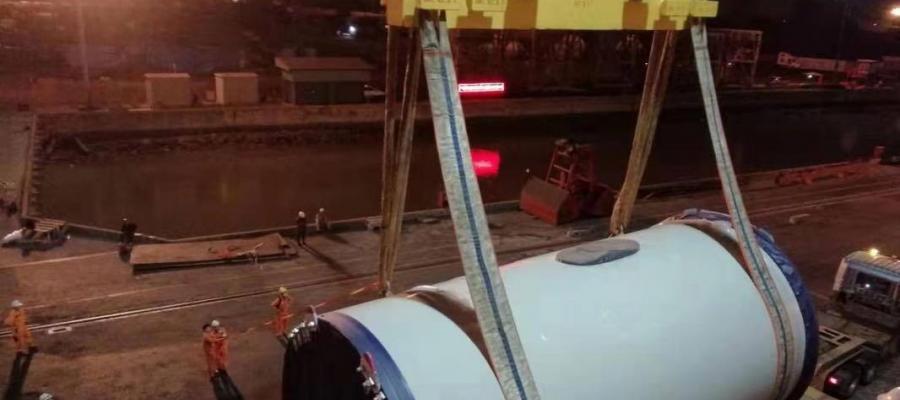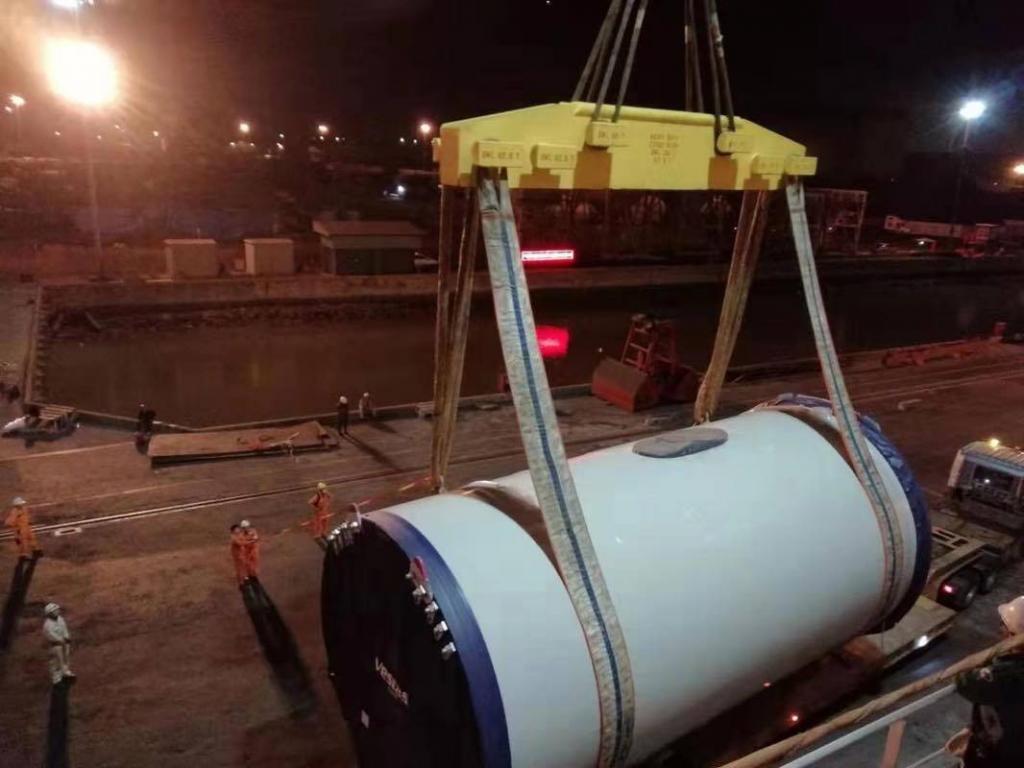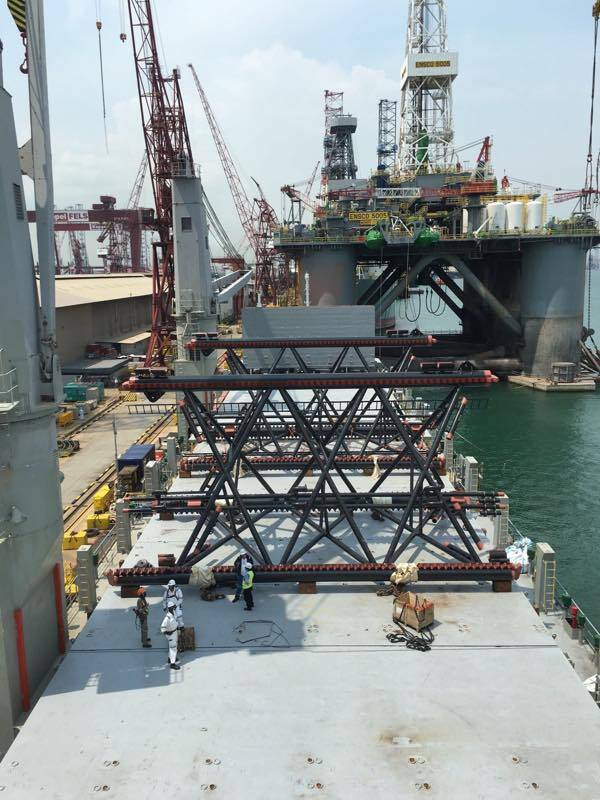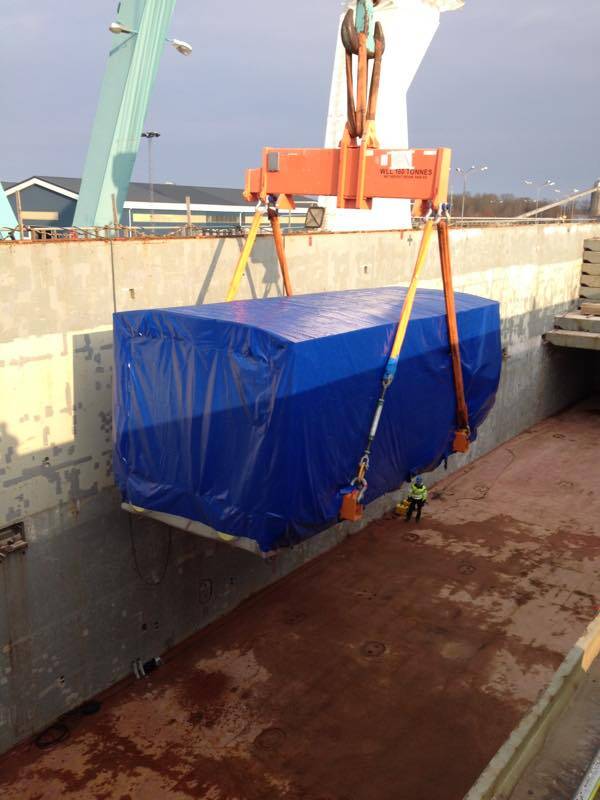
First of all, Nikolaj, please tell us about yourself and your background in chartering which I understand is your main line of business.
Yes, correct. My background is Chartering, mainly within the MPP/Project segment.
I live in Copenhagen with my wife Annette, and have two grown-up sons, Anders (28) and Frederik (23).
The short version of my shipping career is that I started as a trainee in 1993 in a small Danish shipping company called Scandinavian Chartering. The company was controlling a small fleet of 4 x 2800 DWT tween deckers, trading worldwide.
After ending my apprenticeship with Scandinavian Chartering, I was offered a position as junior broker with Elite Far-East Pte Ltd. in Singapore, a subsidiary of Shipowner Elite Shipping Denmark, where I worked for about 2 years.
Thereafter, I went back to Denmark to work for NORDANA Project & Chartering (which was a part of Danish Shipowner/Ship-Operator WECO Group) for about 17 years, mainly in the Copenhagen office but also 1 year in the office in Bangkok. I worked first as a Chartering Broker, and later as a Chartering Manager.
In 2013 I was offered a position with Thorco Projects A/S as Deputy Head of Chartering for Europe & Africa, being responsible for the chartering activities for the various European offices. I had been holding this position until recently when I decided to resign, as I felt that it was time for me to seek new challenges.
Can you tell us more about working for the breakbulk ship owner, Thorco?
As Deputy Head of Chartering Europe and Africa, I was responsible for all Thorco offices and commercial activities within Europe, i.e., Denmark, Germany, UK, Spain, and Turkey.
My main tasks were to coordinate within the various offices concerning cargo booking, tonnage procurement, strategy planning (and execution), negotiation of long- (and short-) term time charter, etc.
I was closely involved in negotiating Pool Contracts and Commercial Management agreements.
During the last few years I also got more involved in the day-to-day business, like booking cargos, chartering in vessels for time charter trips, etc., mainly from Europe to Asia.
Can you tell our readers about how the charter market has changed over the years. There are now many players involved. Some shippers do their own chartering. Some freight forwarders do. Some use brokers and and and… Perhaps you can shed some light on this business and clear up for us who traditionally does what.
The way of thinking, and the way of doing business, has changed a lot over the past years both from the shipowners and shippers/merchants/charterers point of view.
More and more shipowners are changing strategy and structure, from being a traditional shipowner (financing, building and running their own fleet of ships) to switching to an ‘asset light’ model where instead of owning the ships, they charter ships from other companies. By doing so, they are able to maneuver quickly and adjust the number of ships without being severely exposed if the marked conditions change.
From the shippers/merchants perspective in the past, it was common that shippers/merchants either nominated a freight forwarder to be responsible for the full transportation of a specific project, or they used shipbrokers to search for the best sea transportation solution. Furthermore, the shippers made use of their brokers’ knowledge to negotiate terms/conditions and thereby finalize the contract on behalf of the shippers/merchants.
Today, we often see some other scenarios. Some shippers/merchants have decided that they want to have a direct dialog with the shipowners in order to have a more transparent workflow and quicker access to information. There might also be an economic incentive connected to such a decision.
Some shippers have their own shipping department which handles all their business, and even might have their own fleet of vessels.
Some freight forwarders have also become ship operators and charter in tonnage whenever needed to perform the voyages under their own flag.
But, of course, a number of companies still conduct their business as they always have.
How do you view the market in the future? Also, given that you have been stationed abroad from Denmark before, would you be willing to relocate to anywhere if the right position came up?
Well, before the horrible Covid-19 situation became a reality, I was relatively optimistic as to the shipping market in general, but must admit that right now, I find it completely unpredictable. As to when the market will regain its strength, I must say that unfortunately, my crystal ball is quite blurry at the moment. I am however an optimist, and I know that there are always opportunities, even in a difficult and unpredictable market.
When I decided to resign from Thorco, my plan was to take some time off and travel…meet old friends and business partners, and do some thinking about what should be my next career move. Unfortunately the Covid-19 changed these plans more or less overnight, wherefore I had to reevaluate my situation.
But it gave me time to think about things, and my conclusion was that I have no desire to change careers. I love what I do, but it does not necessarily have to be in Denmark. It can also be abroad. I undoubtedly have a weak spot for Asia after working in both Singapore and Thailand in the past but might consider all new interesting opportunities.
Why is it that Denmark seems to produce many “shipping successes” do you think? Here I am referring to the fact that many Danish native shipping people are found worldwide.
It is difficult to say.
I believe it’s a matter of mentality, and the way we are being brought up—living in a relatively small country surrounded by water but with a long proud history of being a seafaring nation.
We don’t have many natural resources, wherefore creativity and ‘thinking out of the box’ is essential in order to create business, also within shipping.
Our native language (Danish) is so special that basically only 6 million people can communicate together (we can, however, still communicate with our neighbors from Norway and Sweden). As a result, from a young age, we have been forced to learn at least one ‘international’ language.
So, it is somehow in our DNA that if we want to prove ourselves and be successful, then we often need to pursue this goal abroad.
Another not unimportant factor is, of course, that the Danish maritime industry has a good and strong education program for the shipping trainees, which is a mix of both theoretical and practical education. After graduation, the various shipping companies often encourage the young people to seek challenges abroad.
Lastly, if our readers want to get in touch with you, how should they do that?
I am always available on either email or phone.
Email: nikolaj.gryndahl@gmail.com
Phone: +45 20208747




